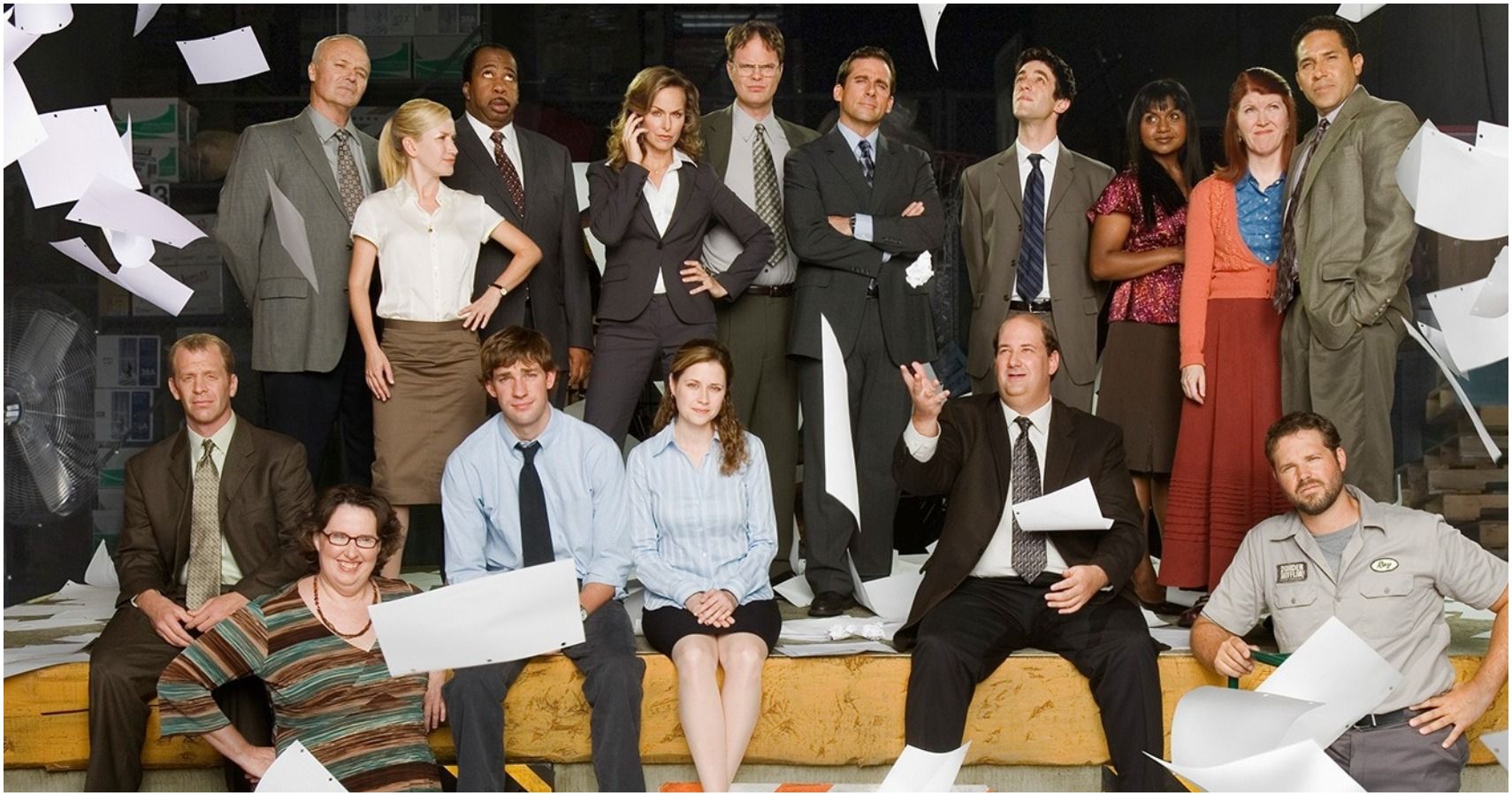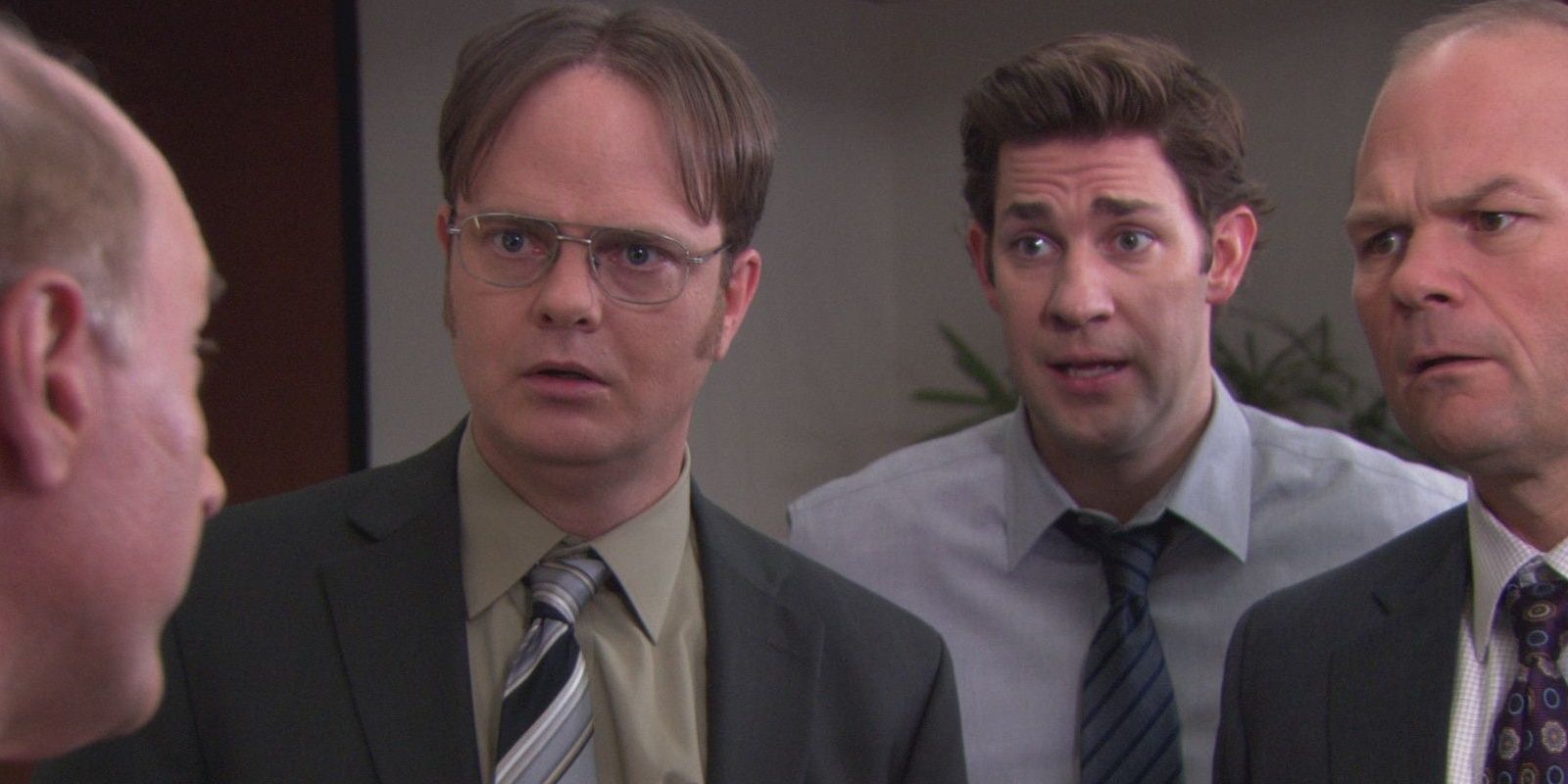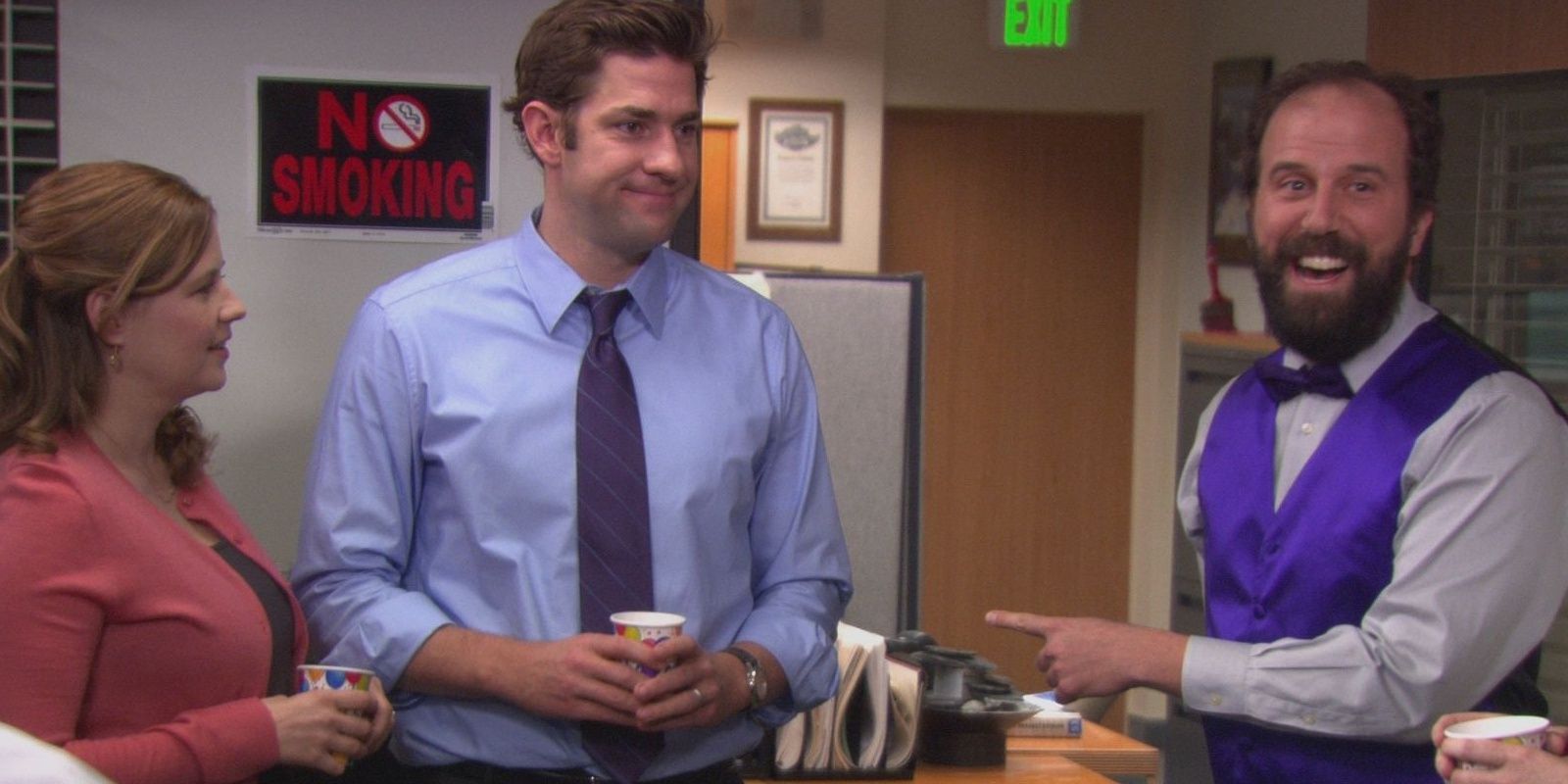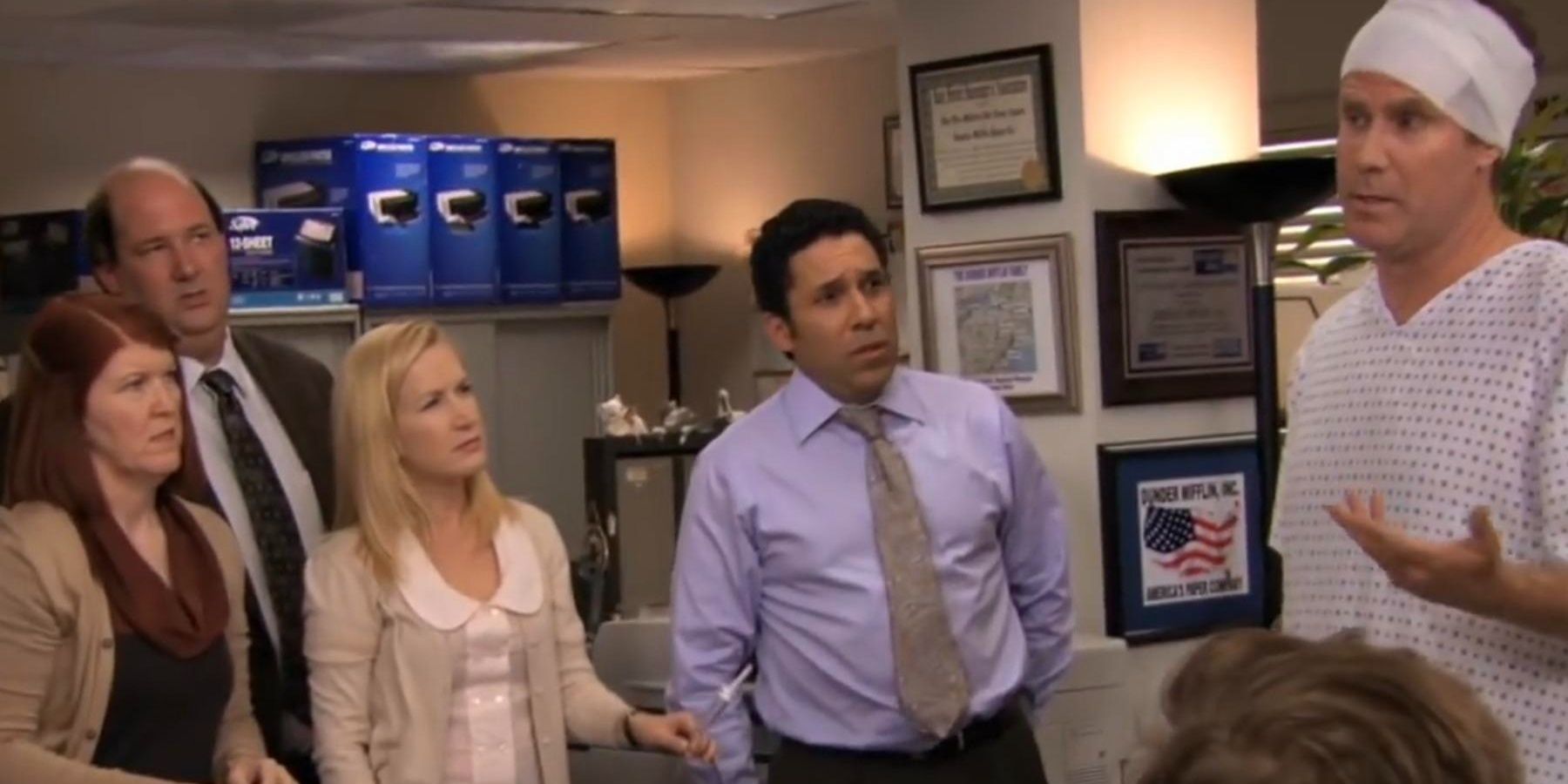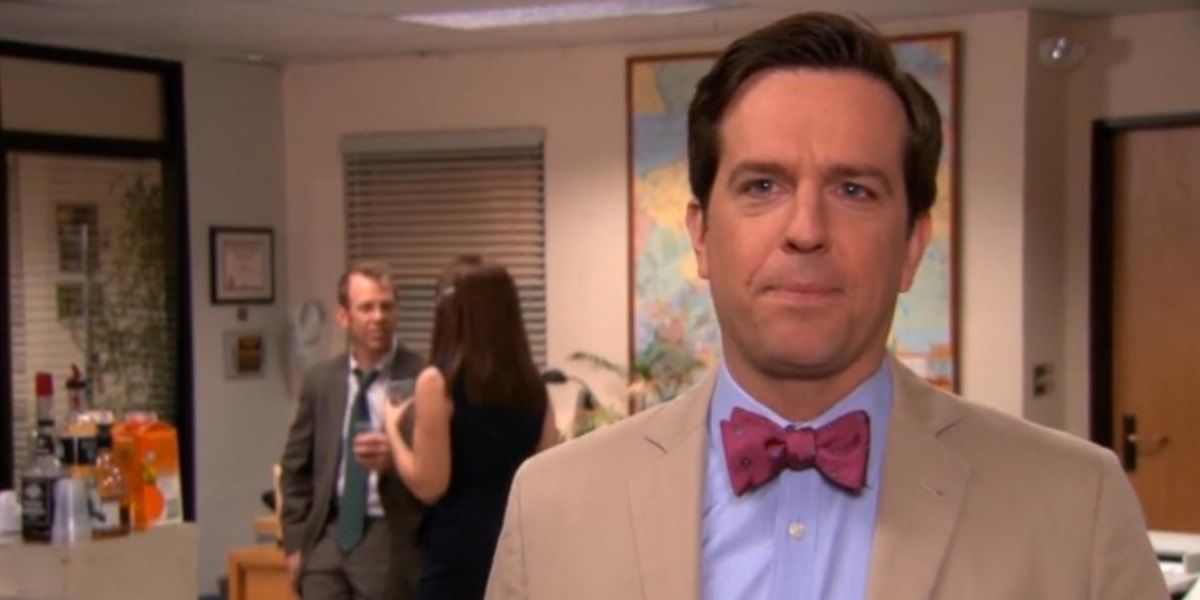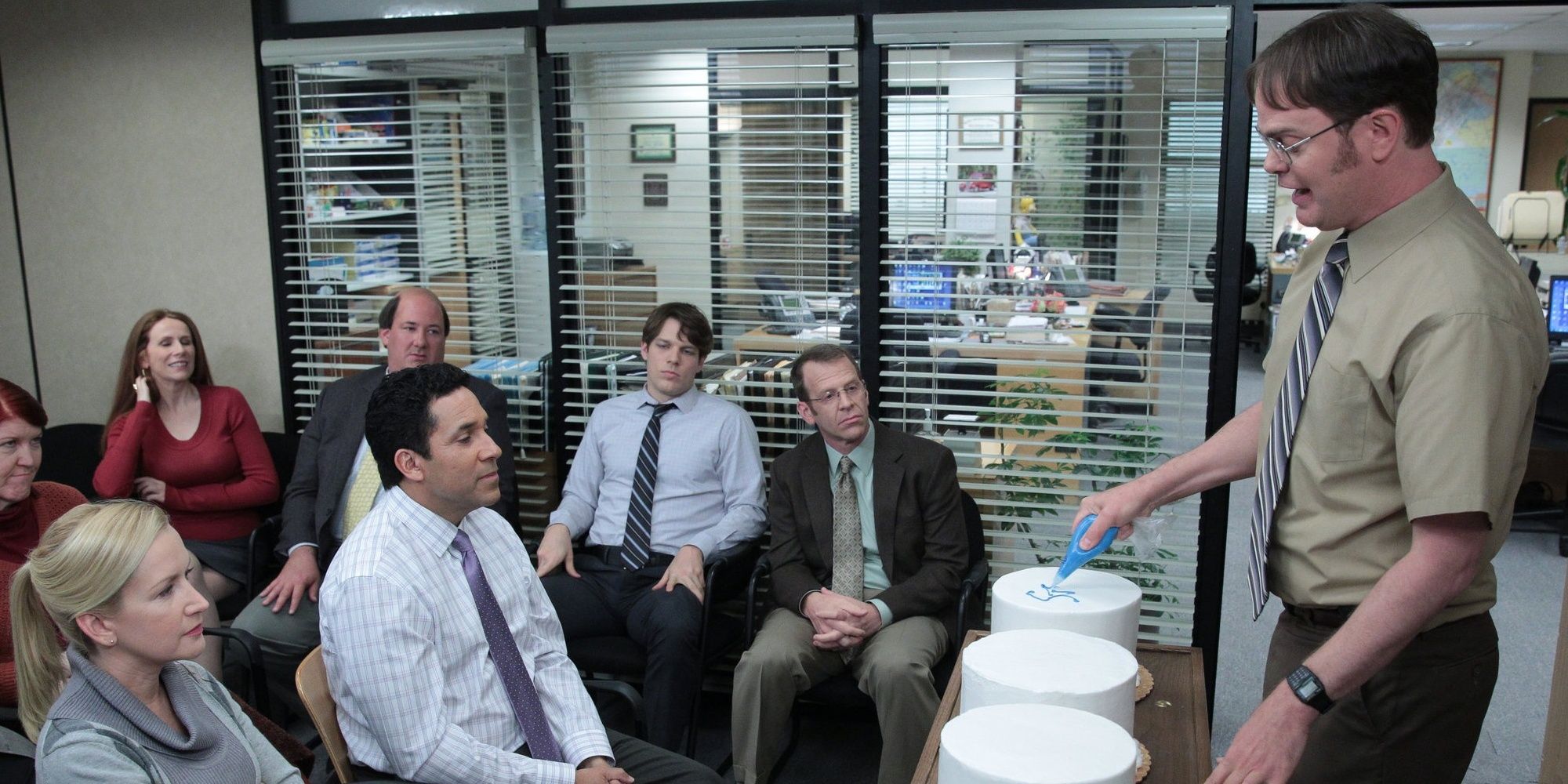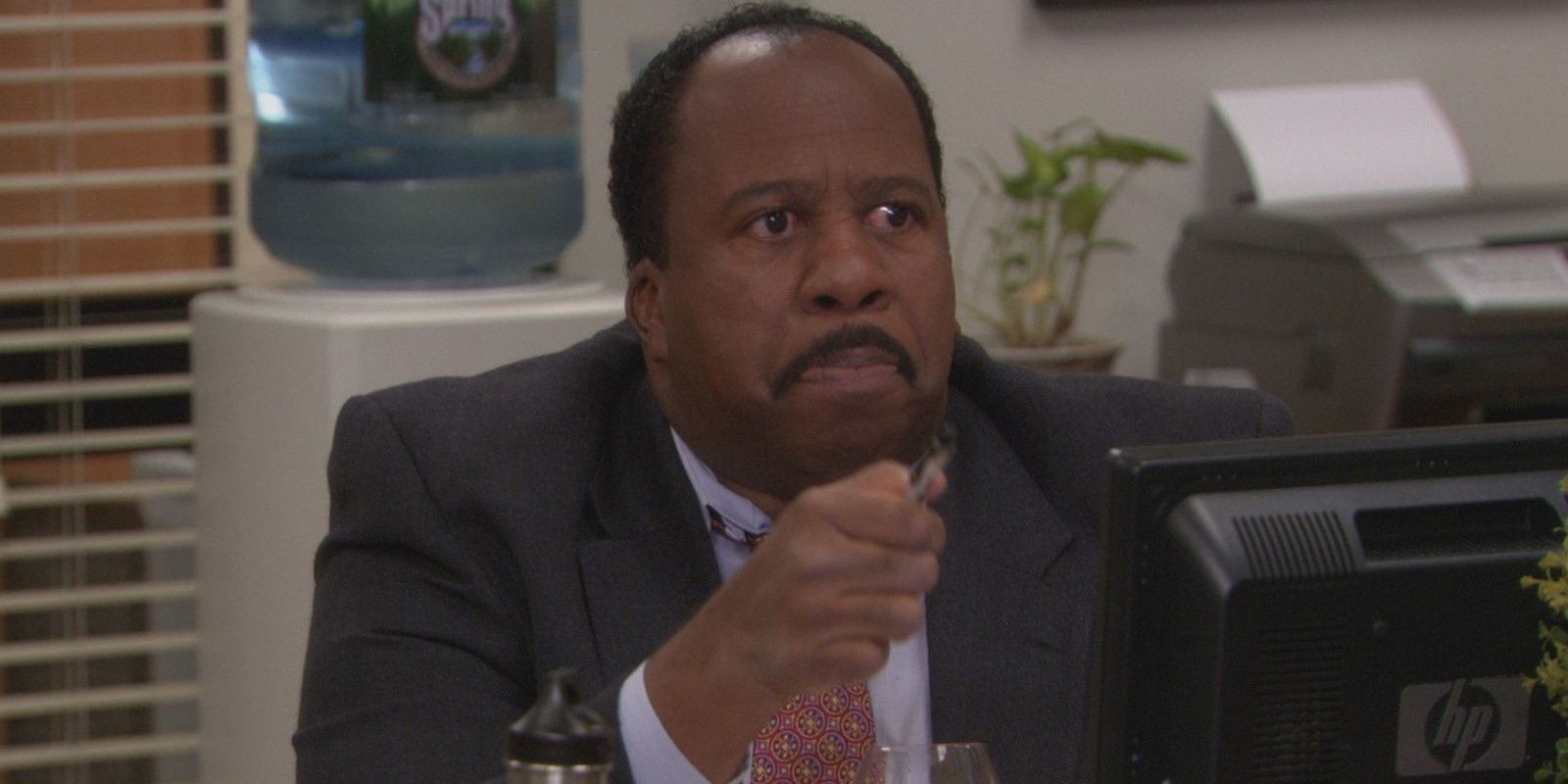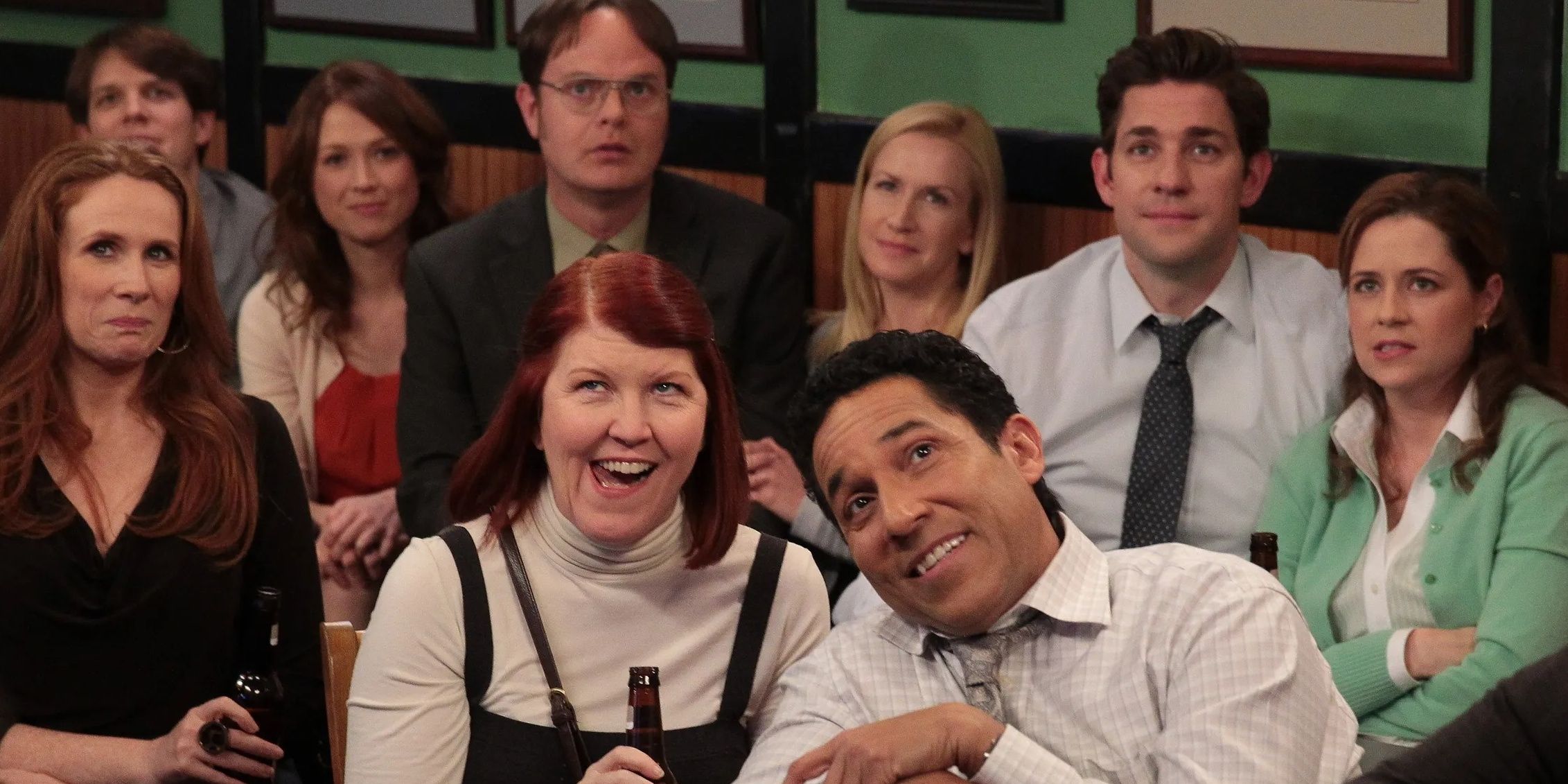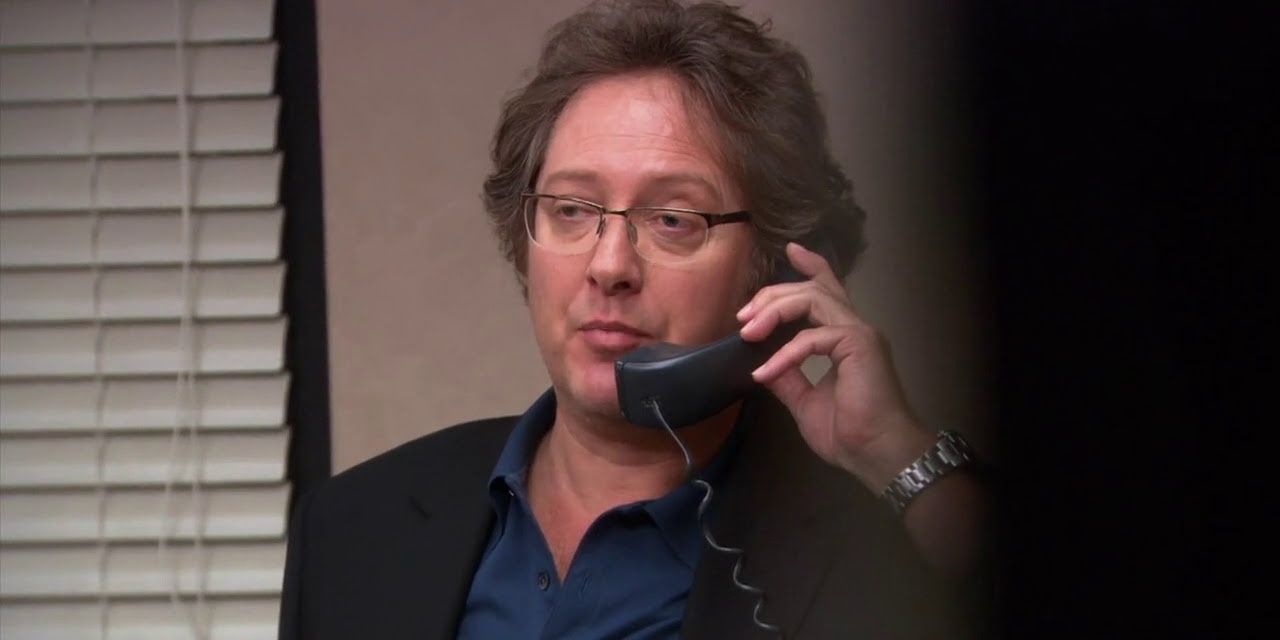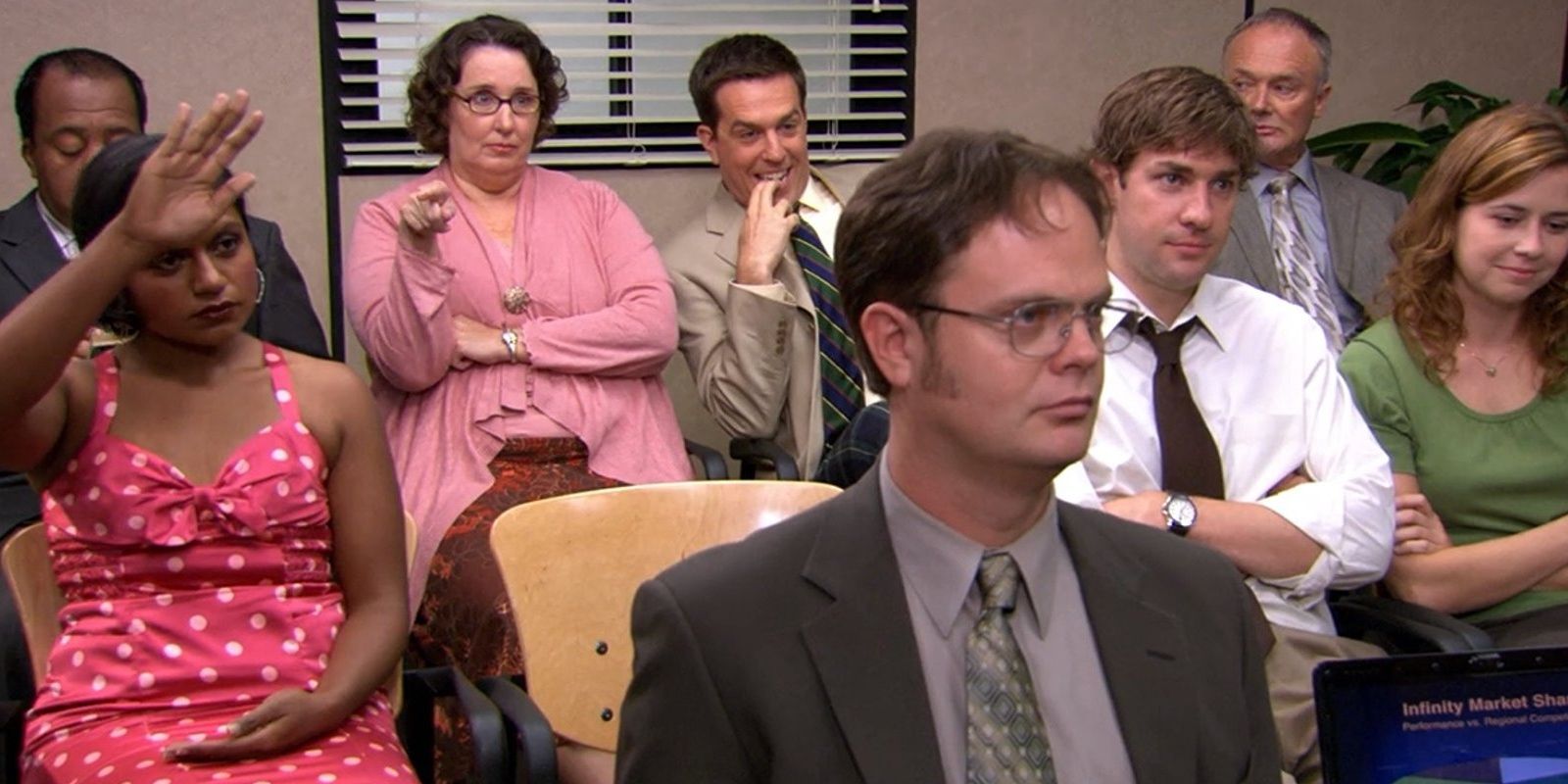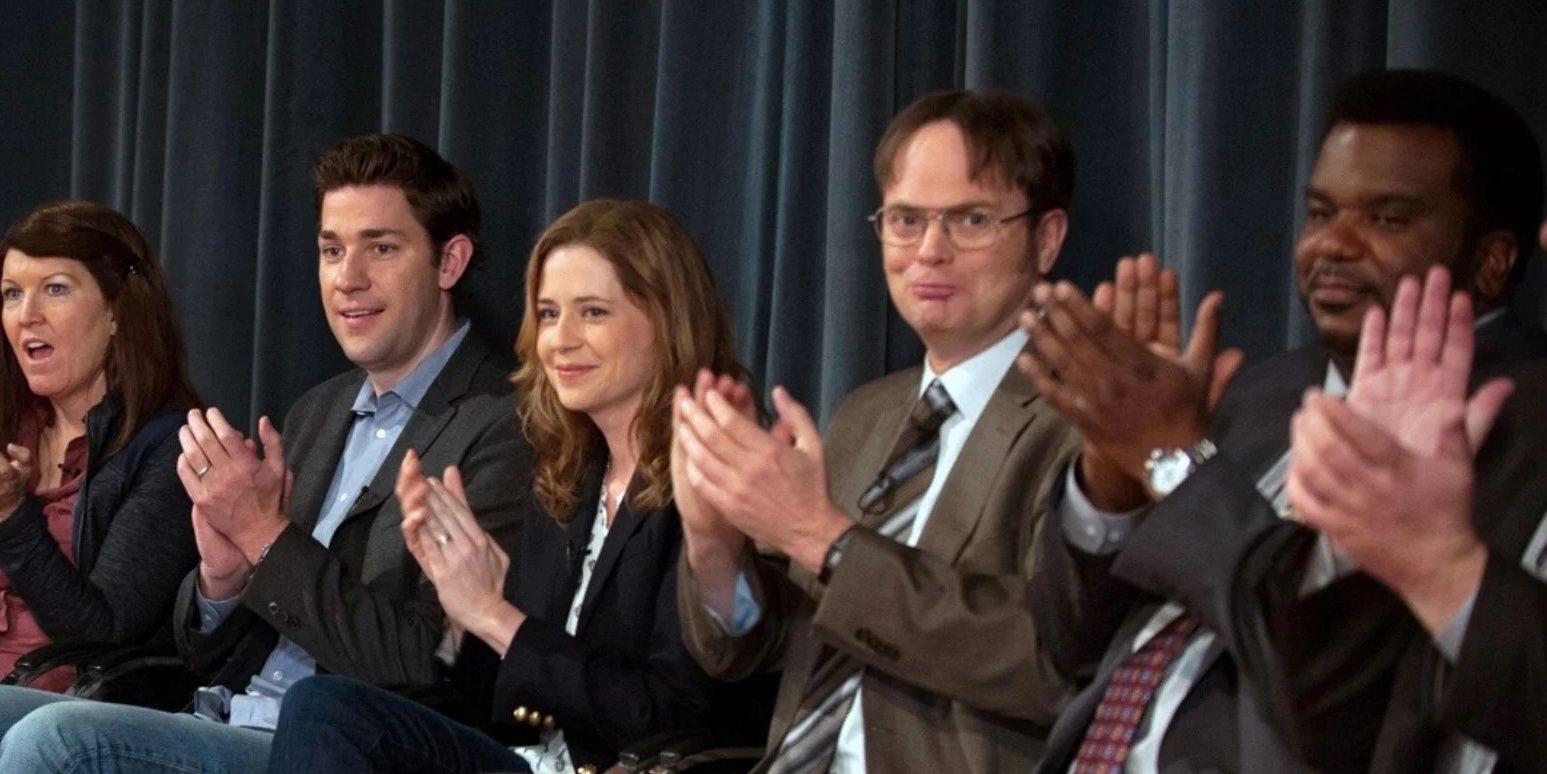Following main star Steve Carell's departure, The Office's quality took a sharp decline.
Critics and audiences consider The Office one of the greatest shows of all time. Unfortunately, it fell into the same trap that most comedy TV shows do, which is that it overstayed its welcome. The show originated in the U.K where they have much shorter seasons, but American audiences demand more than that.
Most network shows have 24 episodes in a season. Often, networks will generally milk a show for as long as audiences are watching and making them money. However, it may be detrimental to the show as it means it goes on a season or two too long. When the main character of a show, like Michael Scott, leaves, one would take this as a sign to close the show. However, The Office decided to continue without its captain, and to some, this may have been a mistake.
Series' Continuation Felt Forced
Many fans and critics believed The Office should have ended when Steve Carell left. However, because the show was still a modest success, the reason for its continuation is more of a financial decision than a creative one.
It costs more to replace an old show with a new one so it makes more sense to let the old one continue. The Office had already been sold into syndication and more seasons means that more episodes could be added to the deal, (which meant more money for the production company). It's a bad sign when a network continues a show for financial reasons instead of believing that these character's stories are over.
Comedy Got Broader
Initially, the humor came out of boring office-life minutia. While there were liberties taken to make the situations funnier, the show still felt very grounded and relatable due to the humor coming from uncomfortable situations that the audiences may have experienced themselves.
However, later seasons include storylines where Angela hires a hitman to kill Oscar, and Dwight shoots Stanley with a tranquilizer gun to get him down a flight of stairs. The show's characters also become caricatures of themselves, with Creed completely insane by the show's end and Andy reverting back to his jerk-ish self.
The Office Workers Became The New Leads
By continuing the show without its central character, The Office proclaimed that the show was more than Michael Scott and that the employees were interesting enough to carry the show. While superb supporting characters made up The Office, the show was really about how they have to deal with an idiot boss when their workplace is on the verge of closure.
Without the idiot boss in the equation, the show didn't serve a purpose. Besides continuing on the supporting characters' storylines, some fans felt that they weren't as compelling to watch when put front and center. While fans still cared about the characters, they would say that Michael's absence was really felt and apparent.
Andy
In Michael's absence, D'Angelo Vickers, Creed, and Andy became the new manager. While the storyline was interesting to take this previously immature character and give him responsibilities, he is unable to live up to expectations.
In the final season, Andy left the show for three months to shoot The Hangover Part III. When he returned, his character changed drastically and he became a nastier Michael Scott. Tragically, due to his sudden arrogance, Andy immediately loses his relationship with Erin, which he spent nearly three years to achieve. Andy was a victim of uneven writing and his actions made him frustrating to watch and increasingly unlikable.
Lost Realism
Initially, the show tried to present Dunder Mifflin as a realistic workplace. The show took place at a paper company, a dying breed in an ever-growing digital world, so the first 6 seasons had a lot of stakes attached to whether the company would survive.
However, Dunder Mifflin's purchase by printer company Sabre was the show's life raft that would cause it to abandon the realities of business. Now, there were no longer any stakes about whether the office would close. The Sabre takeover justified the office remaining open and, therefore, kept the show going. From then on, the situations involving Sabre became more ridiculous and it no longer felt like a real workplace.
Ratings Drop
The Office had high ratings but nowhere near former juggernauts like Friends. The season 8 ratings dropped and resembled the first season's numbers when the show was new and struggling.
It didn't help that reviews for season 8 were not good, although they improved slightly in season 9. It seemed audiences were not as interested in a Steve Carell-less Office.
Storylines
Not only did Steve Carell leave in season 7, but season 9 also saw the departure of Mindy Kaling and B.J Novak. By this time, the show had simply run out of ideas for their characters. Beyond that, the show's storylines weren't that compelling in the final seasons.
The Office recycled storylines and the new ones didn't justify the show's continuation. Long absences from Jenna Fischer in season 8 due to pregnancy and Ed Helms in season 9 limited the show's writing. The only redeeming qualities that came with the season was the documentary crew's reveal and Jim & Pam's marital problems. However, by then, it was too little too late.
New Characters
Seasons 8 and 9 introduced new characters to give the show a soft reboot. James Spader joined the cast as Robert California, who's able to talk his way into becoming the Sabre CEO. While Robert California was funny and James Spader's performance was good, his character never brought any stakes to the show besides being another wacky character the office interacts with. Spader only lasted one year and was never mentioned again.
Season 9 introduced Nellie and two young office workers, Clark and Pete. However, Nellie as a character was strange and reinforced that the humor was no longer coming from reality-based situations, but from oddball characters with ridiculous behavior. Pete and Clark's inclusion felt like a forced mirroring of Jim and Dwight. It also felt like they were recycling storylines again when Pete fell in love with Erin who was like Pam and was already dating a jerk, Andy.
Forgotten Michael
The loss of Michael Scott left a hole in the series and The Office final seasons felt like a spin-off instead of a necessary continuation. Michael gets mentioned occasionally, but no information is given about his current status. Since he was the central character for seven years, it's odd that the show continued without giving clues about his new life.
When Michael briefly reappears in the finale, the viewers find out he has children but little else. Fans would want to know what kind of new job he has and what his life is like. Also, why weren't any of his employees invited to his wedding? If that happened off-screen, it should have been mentioned, or else it feels more like Michael is dead than alive.
The Documentary Reveal Doesn't Work Without Michael
Many critics and fans felt The Office should have ended with Michael Scott leaving. While season 9 introduced an interesting storyline involving the reveal of the documentary crew and how the employees react to seeing their lives on television, it felt empty without Michael. After all, the documentary crew spent seven years with Michael, which means that the documentary featured him the most.
When the employees sit for a Michael-less Q&A, it feels weird. Michael isn't even mentioned, which is not at all realistic. When Michael does show up in the finale, it feels like forced brevity. He doesn't even come back to the office afterward to reminisce with the rest. While this could have been at Carell's request to remain a cameo, he was doing the show a great disservice by robbing fans of a meaningful conclusion.
The Office prevents the audiences from seeing how the show's main character collides with the show's main premise, which is something anticipated from the beginning. Otherwise, this angle feels hollow and fans would rather see how Michael reacts to the world seeing him and how the world reacts to Michael.

